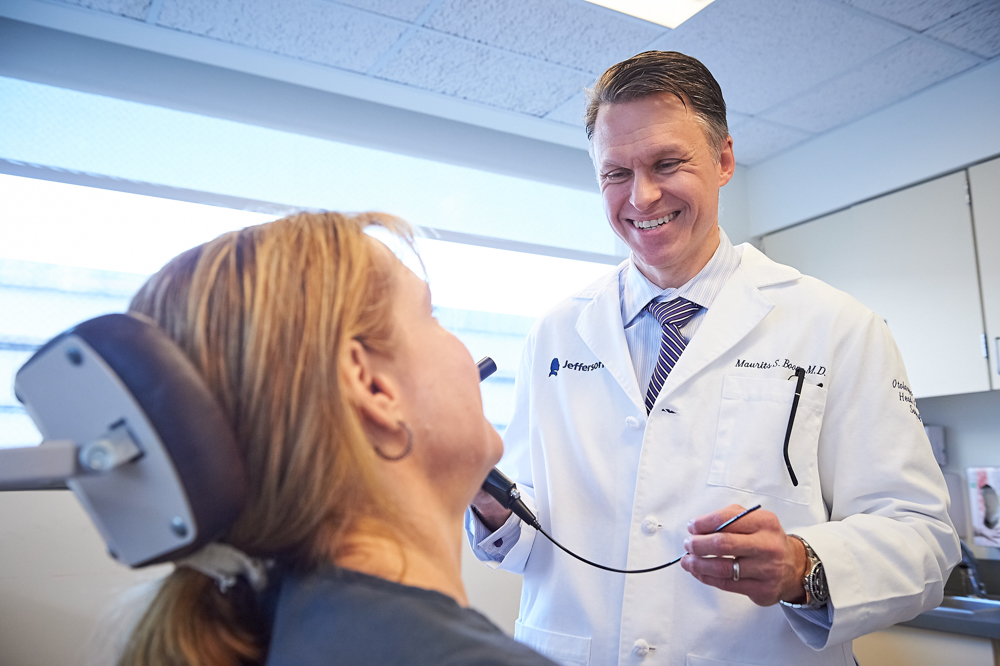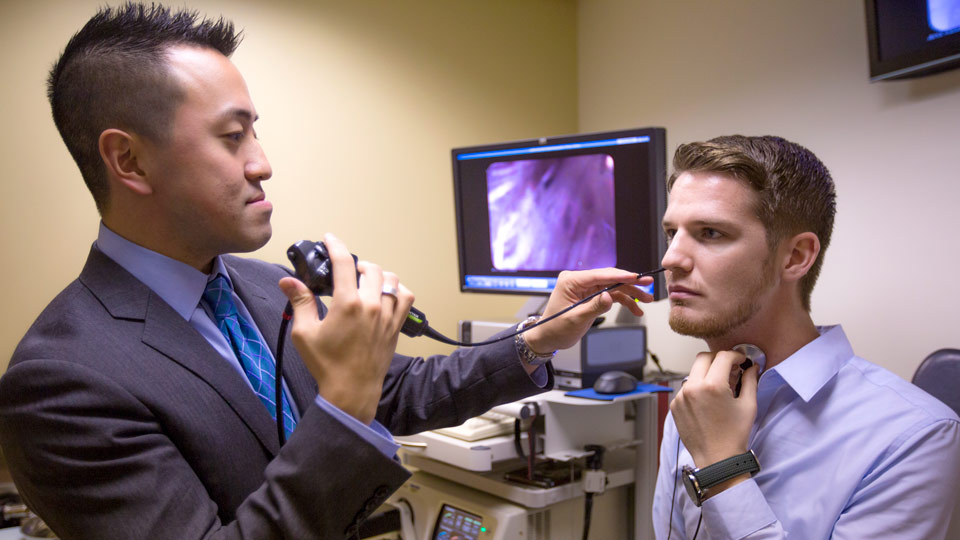Exploring the Area of Otolaryngology: What to Anticipate When You Speak With an ENT
Otolaryngology, typically referred to as ENT, includes the medical diagnosis and treatment of nose, ear, and throat disorders. For those experiencing associated concerns, speaking with an ENT specialist can provide clearness and alleviation. Understanding what to expect throughout such examinations is necessary for reliable interaction and care. This summary will describe key aspects of the ENT experience, including usual factors for check outs and the procedures included in medical diagnosis and treatment.

Comprehending Otolaryngology: A Summary
Otolaryngology, usually referred to as ENT (Throat, ear, and nose) medicine, is a specialized branch of medication that focuses on the medical diagnosis and therapy of conditions impacting these essential areas of the body. This field includes a variety of disorders, including those pertaining to hearing, equilibrium, breathing function, and speech. Otolaryngologists are trained to manage both clinical and medical therapies, utilizing advanced strategies and innovations. Their knowledge extends beyond standard ailments, addressing problems such as allergies, sinus infections, and hearing loss. Furthermore, they play an essential duty in the monitoring of head and neck cancers, offering thorough care tailored to private person demands. Generally, otolaryngology remains crucial for keeping wellness and high quality of life in affected individuals.
Typical Reasons to See an ENT Specialist
Many people look for the knowledge of an ENT specialist for a variety of factors, showing the varied nature of problems that influence the ear, nose, and throat. Usual problems include persistent sinus problems, which usually leads to persistent nasal blockage and face discomfort. Allergies and their associated symptoms, such as itching and sneezing, likewise motivate visits to these specialists (ENT surgery). Hearing loss, whether abrupt or gradual, is one more substantial reason for assessment. On top of that, people may look for assessment for throat conditions, consisting of persistent hoarseness or ingesting problems. Sleep apnea, identified by disturbed breathing during rest, is often dealt with by ENT experts as well. Each of these conditions highlights the relevance of specialized care in handling intricate ENT-related health problems
Planning for Your ENT Appointment
When preparing for an ENT appointment, it is necessary to collect pertinent info and consider any kind of particular concerns. Patients ought to put together a comprehensive case history, including previous ear, nose, or throat problems, surgeries, and current medicines. Documenting symptoms-- such as extent, duration, and regularity-- can give useful understandings for the ENT specialist. In addition, people should prepare a checklist of concerns they desire to ask, ensuring that all worries are attended to throughout the go to. Bringing along any pertinent medical documents or examination results can additionally help the ENT in comprehending the patient's problem. Patients must validate their visit information, including location, day, and time, to minimize any kind of last-minute confusion. Appropriate prep work can improve the efficiency of the examination and bring about much better outcomes.
What to Expect Throughout the Appointment
As the examination starts, the client can anticipate to participate in a complete conversation with the ENT specialist concerning their signs and symptoms and case history. The specialist will certainly inquire concerning the period, frequency, and intensity of signs such as hearing loss, nasal blockage, or sore throat. Furthermore, the individual's previous medical conditions, medicines, and any type of relevant family background will certainly be assessed, helping the expert in forming a total understanding of the client's health and wellness. The ENT may additionally ask regarding way of life aspects, such as exposure to irritants or toxic irritants. This open discussion establishes a structure for the appointment, making certain that the patient's worries are addressed and setting the stage for any needed assessments or recommendations for treatment.
Diagnostic Examinations and Procedures in Otolaryngology
A range of analysis examinations and treatments are important in otolaryngology to precisely review and detect conditions affecting the throat, ear, and nose. Common tests include audiometry, which determines hearing function, and tympanometry, analyzing center ear pressure. Nasal endoscopy allows visualization of the nasal flows and sinuses, while laryngoscopy checks out the throat and singing cords. Imaging methods, such as CT scans and MRIs, supply thorough views of head and neck structures. Allergy screening may also be performed to identify triggers for sinus or respiratory problems. These analysis tools allow ENT professionals to create a comprehensive understanding of individuals' problems, making sure customized and effective monitoring plans. Proper medical diagnosis is necessary for successful treatment end results in otolaryngology.
Therapy Options Used by ENT Specialists
ENT professionals offer a variety of treatment alternatives customized to resolve specific conditions impacting the nose, ear, and throat. These therapies range from conservative approaches, such as medicine and lifestyle alterations, to more intrusive procedures. As an example, allergies might be managed with antihistamines or immunotherapy, while persistent sinus problems may require nasal corticosteroids or sinus surgical procedure. For hearing loss, ENT professionals typically advise listening device or medical interventions like cochlear implants. In cases of throat problems, options can include speech treatment or operations to eliminate obstructions. In addition, they might offer support for taking care of rest apnea, consisting of using CPAP devices or medical treatments. Generally, the goal is to improve patients' lifestyle with personalized treatment and reliable therapy strategies.
When to Seek Follow-Up Treatment With an ENT
Identifying when to seek follow-up Find Out More care with an ENT professional is site here important for handling continuous signs or issues associated with ear, throat, and nose problems. Clients must think about scheduling a follow-up visit if symptoms linger in spite of initial therapy, such as chronic ear pain, nasal congestion, or throat pain. Modifications in hearing, balance issues, or unusual nasal discharge may likewise require further analysis. In addition, if a patient experiences side effects from recommended drugs or has actually undertaken a procedure, follow-up care is vital to monitor recovery and attend to any worries. Timely appointments can assure reliable monitoring of conditions, avoid possible issues, and provide assurance regarding one's wellness. Looking for follow-up treatment advertises aggressive health and wellness management in otolaryngology.
Regularly Asked Inquiries

What Credentials Should I Search for in an ENT Expert?
When seeking an ENT professional, one ought to look for board certification, pertinent experience, and strong person evaluations. In addition, reliable communication skills and a thoughtful strategy can substantially enhance the overall treatment experience.
How Do I Pick the Right ENT for My Needs?
Picking the ideal ENT expert includes assessing their qualifications, experience, and client testimonials (Voice). It is important to consider their communication design and approach to therapy, ensuring they straighten with the individual's details health requirements and choices
Are There Any Threats Related To ENT Procedures?
The threats connected with ENT treatments may consist of infection, bleeding, anesthetic complications, and possible damage to surrounding structures. Patients need to review these dangers with their medical professional to comprehend private issues and warranty notified choices.
Exactly How Can I Manage Stress And Anxiety Prior To My ENT Visit?
To handle anxiousness prior to a consultation, individuals can exercise deep breathing workouts, visualize favorable end results, prepare questions beforehand, and seek assistance from pals or family, promoting a feeling of peace go to this site of mind and calmness.
What Should I Do if I Experience Adverse Effects From Treatment?
If side impacts from therapy take place, the individual must quickly report them to their healthcare company. Modifications to therapy or additional interventions may be necessary to guarantee safety and efficiency in handling their condition - ENT. As the examination begins, the person can anticipate to involve in a comprehensive discussion with the ENT professional concerning their symptoms and medical background. These diagnostic tools make it possible for ENT experts to develop a complete understanding of people' problems, guaranteeing customized and efficient management plans. ENT professionals offer a selection of therapy choices customized to deal with particular problems influencing the ear, nose, and throat. When seeking an ENT expert, one must look for board qualification, relevant experience, and strong patient reviews. Choosing the best ENT expert involves evaluating their qualifications, experience, and individual evaluations